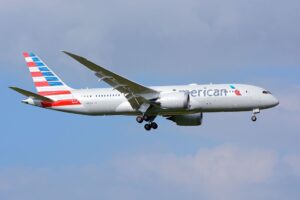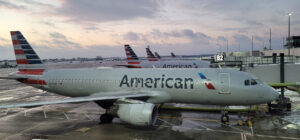Cato Institute's Resistance to Trains
#91
Join Date: Jul 2006
Location: LAX
Programs: AA EXP 1.5MM, Asiana Club Silver, KE Morning Calm, Hyatt Platinum, Amtrak Select
Posts: 7,161
OTOH, America pretty much sucks at this as well and it all stems from post-war suburban sprawl planning based on the automobile. Trying to fix something like that is another headache that will a long time and a lot of money to fix.
This in itself is another point of discussion which will diverge from the main discussion of this thread though.
#92
Suspended
Join Date: Dec 2012
Programs: A3, AA. Plasticy things! That give me, y'know, Stuff!
Posts: 6,293
It's not a matter of trying to match it. That's not the goal. I was saying that it can be as flexible. As others have said, there will be situations where flying is the better economic choice overall for the society. In others, it might be trains. Or cars. Or donkeys. Whatever. The problem is that the US (yes, it's a gross generalization) doesn't even want to have the conversation about what's best for a given situation.
Considering the capital (political, financial, social) necessary to develop a nationwide high speed rail network, shouldn't we strive for something that is substantially better than the existing system?
The reality is that outside of specific corridors already discussed above, high speed rail is not going to be substantially better than flying. A 5-6 hour train ride between Chicago and New York may be technologically possible, but a high-speed link between downtown Chicago and better public transportation options for LGA and JFK would make air travel between New York and Chicago faster and more convenient at a fraction of the cost of building a dedicated 250mph+ rail link between two cities, not to mention improving travel experience for those traveling to other destinations.
EU and Japan already have much less urban sprawl,
as well as faster and more efficient intra-city public transportation systems. High speed rail links between cities are natural extensions of those feeder systems. If we are looking at infrastructure investments with the best ROI, I think we should start small and local.

#93
Join Date: Jul 2006
Location: LAX
Programs: AA EXP 1.5MM, Asiana Club Silver, KE Morning Calm, Hyatt Platinum, Amtrak Select
Posts: 7,161
The things you mention are true. But they also speak to a mindset of "train as subsidiary to flying" and "it can't be done". Why shouldn't it compete outright in certain areas? If the airlines want better access to airports to make themselves more efficient then why aren't the airlines fronting the money for it?
Care to analyze why AA would be for it, while WN would be against it?

A good study case where even within the industry, perspective may differ.
Last edited by kebosabi; Feb 12, 2013 at 4:52 pm
#94
Join Date: Jul 2006
Location: LAX
Programs: AA EXP 1.5MM, Asiana Club Silver, KE Morning Calm, Hyatt Platinum, Amtrak Select
Posts: 7,161
Is there anything wrong with privatizing mass transit for intracities run for profit, instead of using public mass transit paid for with tax dollars?
Is mass transit in the US mainly still viewed as "way for the poor who can't afford cars to get around therefore it makes sense to throw tax dollars at it as a public good" or is there a paradigm shift going on where the middle class are starting to get hurt with rising gas prices that it's not really just a way for the poor to get around, but for the middle class as well, which could warrant public transit to diverge away from that line of thinking to become a for profit enterprise?
What fare models would suit better in order to run intracity mass transit for profit? What fare models do we use today with most public transit in the US? (LA Metro, NY Metro, CTA, etc.)
What fare models do other countries use when they are run as a private mass transit? (Tokyo JR lines, HKMTR, Singapore SMRT)
How much freedom should we give to mass transit agencies (or if privatized, to corporations) in real estate development? Should mass transit agencies (or if privatized, mass transit corporations) be allowed to reap in money and profits from building condos and apartments, office buildings and department stores so as to make cities livable?
Once you get into the details, discussion of this matter is better off left to another thread.
Last edited by kebosabi; Feb 12, 2013 at 5:04 pm
#95
Join Date: Sep 2006
Posts: 6,967
So much of this discussion centres around 'current state'. Those of you arguing that in America there is a decent coverage via air seem to be overlooking the fact that air travel in the US may change in the near future. With the number of mergers recently, as well as a number of other factors such as technology, fuel costs, etc I suspect that the US airline industry will continue to change over the next few years and 'current state' may no longer be an argument for not investing in alternatives.
And frankly, I think that the current culture of fear in America is here to stay. I don't think that airport security will ease to the levels in 'rest of world'; I think that if anything, the US will continue to become more and more fearful and continue to implement more and more unnecessary measures in airports in the claim of 'security'. At some point people will reach their personal tipping point and won't see air travel as the first option anymore.
Too much of the argument is being made in black and white. HSR is one of several methods of transportation; in France for instance the TGV lines have only recently expanded to include more cities. Now I have the option to fly to FRA or STR, or to take train to Strasbourg, and connect via car/bus/train if I need to be in western German/eastern France. I don't think that those who support HSR are suggesting that it cover all of the US, just as it doesn't cover all of France, or Germany, or China or other relatively large countries which have HSR.
But as kebosabi says in the post above, it's also about changing mindsets about travel and the perceptions about transit, and trains.
And frankly, I think that the current culture of fear in America is here to stay. I don't think that airport security will ease to the levels in 'rest of world'; I think that if anything, the US will continue to become more and more fearful and continue to implement more and more unnecessary measures in airports in the claim of 'security'. At some point people will reach their personal tipping point and won't see air travel as the first option anymore.
Too much of the argument is being made in black and white. HSR is one of several methods of transportation; in France for instance the TGV lines have only recently expanded to include more cities. Now I have the option to fly to FRA or STR, or to take train to Strasbourg, and connect via car/bus/train if I need to be in western German/eastern France. I don't think that those who support HSR are suggesting that it cover all of the US, just as it doesn't cover all of France, or Germany, or China or other relatively large countries which have HSR.
But as kebosabi says in the post above, it's also about changing mindsets about travel and the perceptions about transit, and trains.
#96
Join Date: Apr 2000
Location: Palm Beach/ New England
Programs: AA EXP 3MM, DL GM, Marriott Platinum
Posts: 4,385
...
The things you mention are true. But they also speak to a mindset of "train as subsidiary to flying" and "it can't be done". Why shouldn't it compete outright in certain areas? If the airlines want better access to airports to make themselves more efficient then why aren't the airlines fronting the money for it?
The things you mention are true. But they also speak to a mindset of "train as subsidiary to flying" and "it can't be done". Why shouldn't it compete outright in certain areas? If the airlines want better access to airports to make themselves more efficient then why aren't the airlines fronting the money for it?
Once that happens, I would be willing to take a look at investing public money in HSR. Until then, I think our ever-dwindling transportation budgets should be directed at the transportation options that are actually providing the vast majority of passenger miles -- the highway and the airplane.
#97
Join Date: Jan 2008
Location: Neither here nor there
Programs: UA Slvr, DL Slvr, AA plt, HH LTD, MR tit/LTP at least two of those buy 10 get 1 free coffee cards
Posts: 3,481
Any private company, a new start-up or one of the many existing railroads, has the right to raise capital and start constructing a HSR, even as a small proof-of-concept between two high value endpoints, like the NYC and Chicago example cited above.
Once that happens, I would be willing to take a look at investing public money in HSR. Until then, I think our ever-dwindling transportation budgets should be directed at the transportation options that are actually providing the vast majority of passenger miles -- the highway and the airplane.
Once that happens, I would be willing to take a look at investing public money in HSR. Until then, I think our ever-dwindling transportation budgets should be directed at the transportation options that are actually providing the vast majority of passenger miles -- the highway and the airplane.
#98
Join Date: Mar 2004
Location: Minneapolis, Minnesota,USA
Programs: UA, NW
Posts: 3,752
Either that, or we can continue to fly those dinky ERJ commuter jets that seat 70 passengers in cramped spaces for $400 one-way between LA and San Diego. Spend 2 hours to get to the airport, pad another 2 hours before your flight, spend about 30 minutes on the taxiway before take off, all for what? Less than 30 minutes in the air? The hassle ain't worth it for 101 miles of travel. You're better off taking Amtrak Pacific Surfliner from LA Union Station to Santa Fe Depot for $30 and you'll be in Downtown San Diego in about 3 hrs.
Now high-speed rail is not suitable for traveling from the East Coast to the West Coast, but it would be a fantastic option for shorter distances. Amtrak in its present incarnation is underfunded, uses antiquated equipment, and forced to yield to freight trains, but if there were a Shinkansen-type train running between Minneapolis and Chicago, I'd choose it over air travel every time. And that may be what the airline and auto industries are afraid of.
#99
Moderator: CommunityBuzz!, OMNI, OMNI/PR, and OMNI/Games & FlyerTalk Evangelist
Join Date: Nov 2000
Location: ORD (MDW stinks)
Programs: UAMM, AAMM & ExPlat, Marriott lifetime Plat, IHG Plat, Hilton Diamond
Posts: 23,534
It's exactly the same as the car companies buying the tram services throughout the US in the 1940's and 1950's, crippling them, watching ridership plummet, and then claiming that people no longer wanted to use the services and shutting them down - all while only pointing at the fall in riders and saying that's all that matters for "why it doesn't work."
#100
Join Date: Jan 2008
Location: Neither here nor there
Programs: UA Slvr, DL Slvr, AA plt, HH LTD, MR tit/LTP at least two of those buy 10 get 1 free coffee cards
Posts: 3,481
http://caselaw.lp.findlaw.com/script...=334&invol=573
This the text of the appeal. Most historians now realize that GM/NCL was only a small part of the problem. Government unwillingness to invest in new infrastructure and the national embrace of suburban sprawl played equal or larger roles.
#101
Join Date: Jan 2011
Location: Singapore
Programs: SQ KF (ex-UA)
Posts: 588
China actually does have passenger security screening in their HSR stations. It's basically like pre-9/11 style airport security and a mild annoyance at most. (laptops in, shoes/outerwear stay on, etc.)
It's mostly security theater but it seems to be taken more seriously than in the subway stations - for example someone actually looks at the x-ray display...
It's mostly security theater but it seems to be taken more seriously than in the subway stations - for example someone actually looks at the x-ray display...
#102
Join Date: Sep 2007
Location: ORD
Programs: UA MM, AA PPro
Posts: 1,480
The data is readily available, Amtrak publishes embarking/alighting data regularly. Remember that the Acela is already running express. It skips a lot of the stops that the regional trains continue to call at. Have you ridden it? It's a good, high end product that like its west coast counterpart the cascades, has made me swear off flying in the NEC. I do sometimes take the regionals if the Acela is particularly pricey and I'm traveling for leisure.
#103
Original Poster
Join Date: Sep 2012
Posts: 574
Some thoughtful discussion here about what's lacking in
America's woefully inept (passenger) train services...
As OP, I can't help but notice one thing--FlyerTalk readers are leaps and bounds ahead of transportation engineers and politicians in terms
of creativity and common sense...the country that sent
a man to the moon 40 years ago can do better than AMTRAK.
America's woefully inept (passenger) train services...
As OP, I can't help but notice one thing--FlyerTalk readers are leaps and bounds ahead of transportation engineers and politicians in terms
of creativity and common sense...the country that sent
a man to the moon 40 years ago can do better than AMTRAK.
#104
Join Date: Sep 2007
Location: ORD
Programs: UA MM, AA PPro
Posts: 1,480
It's not a matter of trying to match it. That's not the goal. I was saying that it can be as flexible. As others have said, there will be situations where flying is the better economic choice overall for the society. In others, it might be trains. Or cars. Or donkeys. Whatever. The problem is that the US (yes, it's a gross generalization) doesn't even want to have the conversation about what's best for a given situation.
...
The things you mention are true. But they also speak to a mindset of "train as subsidiary to flying" and "it can't be done". Why shouldn't it compete outright in certain areas? If the airlines want better access to airports to make themselves more efficient then why aren't the airlines fronting the money for it?
...
The things you mention are true. But they also speak to a mindset of "train as subsidiary to flying" and "it can't be done". Why shouldn't it compete outright in certain areas? If the airlines want better access to airports to make themselves more efficient then why aren't the airlines fronting the money for it?
The majority of arguments I hear can be distilled to "HSR works great in Europe and Japan." Not good enough; we are not in Europe or Japan. I can see how true HSR would work on the current Acela route. I can sort of see how HSR could work along West coast if the trains would actually serve San Francisco proper (not Emeryville) and make stops at area airports. I'm much less convinced that HSR will do a great deal for Chicago. HSR value proposition becomes much harder to prove for the rest of the country.
My approach is fairly simple: investments in local public transportation benefit more local residents and visitors (e.g., those arriving by air), more often (every day vs. travel days). Local public transportation does not rely on HSR to be efficient, whereas HSR can't realize its potential without an easy way for passengers to get to/from train stations. Distances are shorter and technological challenges are smaller. In other words, higher return on lower investments equals a better ROI.
Last edited by legalalien; Feb 13, 2013 at 12:21 am
#105
FlyerTalk Evangelist
Join Date: Dec 2000
Location: south of WAS DC
Posts: 10,131
Randal O’Toole's seat at cato is funded by oil and gas.
O'Toole has been criticized for declaring that roadways pay for themselves and are the best use of public funds, even though highways are some of the most expensive public works projects.[17] Detractors have noted O'Toole's selective use of information, undocumented statistics, and unverifiable sources of information in order to support his claims against rail transit.
O'Toole has been criticized for declaring that roadways pay for themselves and are the best use of public funds, even though highways are some of the most expensive public works projects.[17] Detractors have noted O'Toole's selective use of information, undocumented statistics, and unverifiable sources of information in order to support his claims against rail transit.





















